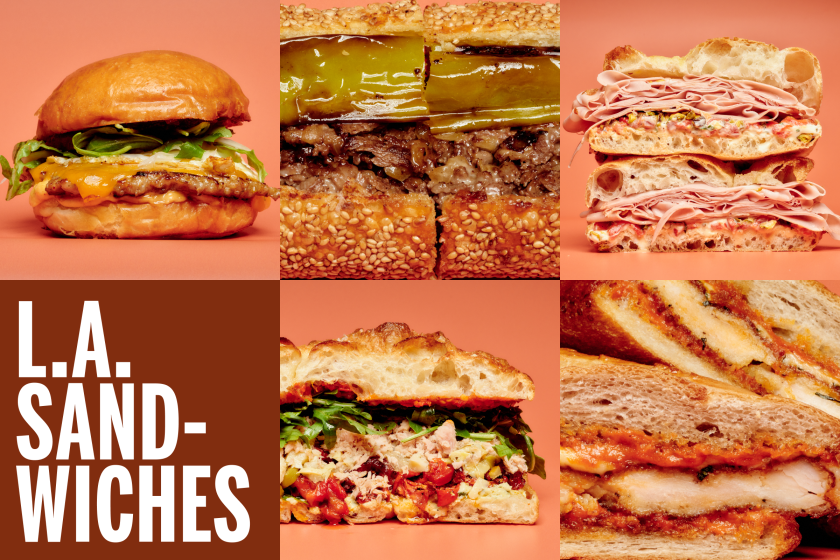Firm Might Stop Making Apple Juice
If the Food and Drug Administration orders apple juice makers to pasteurize their products in the aftermath of an outbreak of E. coli illness, Odwalla Inc. might forgo making its signature product.
“I don’t know whether we’d make apple juice at that point,” said Stephen Williamson, chief executive of the Half Moon Bay, Calif., purveyor of fresh juices.
Such a decision is still days or weeks away, since federal investigators have yet to pinpoint how the virulent E. coli O157:H7 bacteria came to taint a batch of unpasteurized apple juice that Odwalla sold in October. The illnesses of 49 individuals in the Western United States and British Columbia--and possibly the death of a Colorado toddler Friday--have been linked to that juice.
Elimination of its fresh apple juice business would be a Draconian step for Odwalla. More than half its $59 million in sales for the most recent fiscal year came from apple juice and products that contain apple juice. The company has been busily reformulating some of its blends using juices other than apple.
The company’s reputation has been built on fresh, unpasteurized juices with no chemicals or preservatives, and pasteurization (a bacteria-killing heating process) would not fit especially well with its philosophy, Williamson indicated Monday.
“We could have very easily rushed into pasteurized apple juice,” he said. “Our company is a fresh juice company, and we want to understand [the problem thoroughly] rather than make a snap judgment.”
Since the outbreak came to light last month, Odwalla executives have been hustling to keep key retailing accounts informed of progress in the search for the breach in Odwalla’s otherwise praiseworthy health and safety standards. The company recalled 16 products, including carrot juices that were bottled in the same Central Valley plant as the apple juice.
Soon after that, Starbucks coffee outlets in four Western states and British Columbia stopped selling Odwalla orange juice as well. For the time being, the Seattle-based coffee chain is selling other brands of pasteurized orange and apple juices.
Although some Starbucks managers were under the impression that the decision to stop selling Odwalla products was permanent, corporate spokeswoman Cheri Libby said that “no contracts have been canceled.”
And Williamson noted that he had talked with Starbucks Chief Executive Howard Schultz, who “has reaffirmed his support for our company.” Schultz could not be reached for comment.
Starbucks was named in a lawsuit filed Thursday in Seattle by the family of a 6-year-old boy who required abdominal surgery after drinking Odwalla juice. His mother bought the juice at a Los Angeles-area store. Libby said Monday that the company has not been served with a suit.
After Friday morning’s death of 15-month-old Anna Gimmestad at Denver Children’s Hospital was tentatively tied to her consumption of Odwalla juice, Wild Oats natural foods markets also removed citrus-based Odwalla products from its stores. As of Monday, however, those were being restored.
“We made a conservative decision to remove all products except [Odwalla] waters,” Jim Lee, Wild Oats’ chief operating officer, said of Friday’s decision. “We’ve received assurances [from Odwalla] that there is no problem restocking non-apple-juice-based products.”
Whole Foods, based in Austin, Texas, and Safeway stores in Northern California, among other key accounts, were “sticking with us,” Williamson said.
More to Read
Eat your way across L.A.
Get our weekly Tasting Notes newsletter for reviews, news and more.
You may occasionally receive promotional content from the Los Angeles Times.








